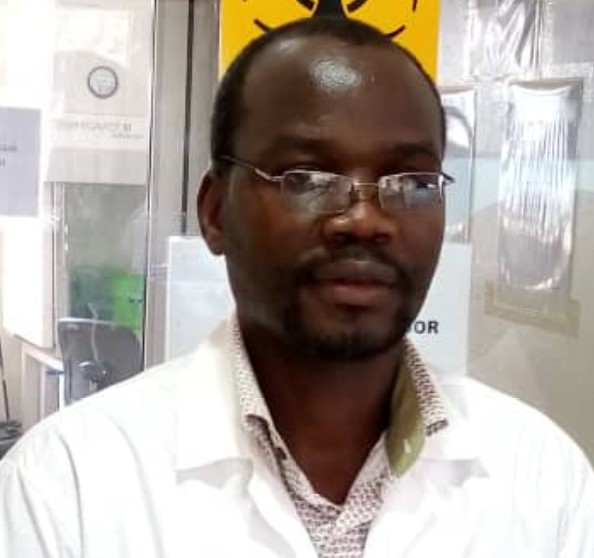

Dr
Catherine Riou
Current Organisation
University of Cape Town
Current Job Title
Chief Research Officer
Biography
Publications
Project Title
Deciphering the immunological signatures of the TB spectrum from infection to disease (TB-SPEC)
EDCTP Project
TMA2017SF-1951
EDCTP Program
EDCTP2
EDCTP Project Call
Senior Fellowship (SF)
Host Organisation
| Department | Institution | Country |
|---|---|---|
| University of Cape Town (UCT) | ZA |
Project Objectives
1) To identify the immune signature across the TB spectrum of infection and disease 2) To define the impact of HIV infection on Mtb immune responses across TB spectrum of infection 3) To evaluate the extent to which TB and/or HIV treatment restore the profile of Mtb-specific immune responses.
Study Design
NA
Project Summary
While TB has long been classified into two categories: latent or active infection, our current understanding is that Mtb infection represents a dynamic continuum of pathology. Innovative imaging techniques (PET/CT) have recently been used to identify lung pathology associated with subclinical disease states, thereby defining intermediate states of infection within individuals classified as latently infected. Transition along the TB spectrum (from latent to active infection) is largely dependent on the immune competence of the host, but what constitutes a protective immune response remains elusive. Most people infected with Mtb mount a robust immune response in which the innate and adaptive immune systems work together to clear or contain the bacteria. CD4 T cells have been shown to play a key role in Mtb immunity, and the clinical outcome of Mtb infection appears to depend on the ability of the immune system to generate a balanced CD4 T cell response. Therefore, to better understand the cellular features associated with TB risk or protection, it is essential to comprehensively characterize the profile of the Mtbspecific CD4 response across the different phases of the TB spectrum, from quiescent infection, through the subclinical stage to clinically active disease. In this project we will investigate: 1) the signature profile of the Mtb-specific CD4 response to identify predictive biomarkers for those most at risk of developing TB and 2) the impact of HIV treatment on the Mtb-specific CD4 response. In the 5th year of this project, we have divided our work into two areas: 1) TB-related projects focusing on the effect of HIV infection on Mtb-specific adaptive cell responses. 2) COVID-19 research to unravel the role of T-cell immunity in SARS-CoV-2 pathogenesis. We have made significant progress in both areas. 1) In collaboration with researchers from the Department of Radiology at the University of California (USA), we developed a computerized, semi-automated quantitative radiographic score of TB disease extent (TB-CAD) and applied it to high-resolution computed tomography (HRCT) chest scans of TB patients. The TB-CAD score correlated with bacterial burden, peripheral monocyte count and Mtb-specific CD4+ T-cell activation, independent of HIV status. These results further confirm that HLA-DR expression on peripheral Mtb-specific CD4 T cells is a robust marker of the extent of TB-associated lung inflammation and may aid in the diagnosis of asymptomatic/ subclinical TB. These results have been published in the European Respiratory Journal (Riou et al. 2023). In addition, we gained access to stored PBMC samples collected longitudinally from a well-defined HIV cohort (CAPRISA-002), which allowed us to perform a detailed analysis of the dynamics of Mtb-specific CD4+ T-cell responses over the course of HIV infection and after initiation of antiretroviral therapy (ART). Overall, our results support previous findings that early exhaustion of TB responses can occur in some individuals soon after HIV infection, but the kinetics and maintenance of Mtb responses in people living with HIV are highly heterogeneous and may be influenced by ongoing exposure to Mtb in a high exposure setting such as South Africa. These results have been submitted for publication. 2) On the COVID-19 front, we led and published three papers describing: i) The maintenance of T cell responses in the context of hybrid immunity 3.5 years after the onset of the COVID-19 pandemic (Nesamari et al., Cell Host & Microbe, 2024), ii) The safety and immunogenicity of fractional and full doses of Ad26.COV2.S and BNT162b2 in participants previously vaccinated with Ad26.COV2.S (Riou et al., PLoS Global Public Health, 2024) and iii) the dynamics of spike-specific antibody and T-cell responses in SARS-CoV-2 naive individuals compared to those infected prior to vaccination (Moyo-Gwete et al. PLoS Pathogen, 2023). In addition, we were involved in two COVID-19 projects focusing on SARS-CoV-2 immune responses in children and showed that endemic human coronavirus cross-reactivity may contribute to SARS-CoV-2 protection in children (Butters et al. Clinical Immunology, 2024 and Benede et al. iScience, 2024). Finally, a review article led by the Senior Fellow was published in Cellular and Molecular Immunology (Höft et al., 2024). This review examines the intersection of the HIV and SARS-CoV-2 pandemics.


